
The Timeless Charm of Plaka: Athens' Historical Heart
Welcome to Plaka, the oldest and most picturesque neighborhood in Athens, Greece. Nestled beneath the ancient Acropolis, Plaka is often referred to as the 'Neighbourhood of the Gods' due to its proximity to the historic landmarks. The cobblestone streets, neoclassical architecture, and vibrant bougainvillea are just the beginning of what makes this area so enchanting for visitors. Explore the labyrinthine alleys dotted with traditional tavernas, quaint cafes, and unique shops selling everything from handmade jewelry to authentic Greek souvenirs. Each corner you turn reveals a new facet of Plaka's rich history, with ancient ruins and Byzantine churches seamlessly blending into the modern-day hustle and bustle. For history buffs, Plaka offers easy access to some of Athens' most iconic sites. The Roman Agora, the Tower of the Winds, and the Lysicrates Monument are all within walking distance. Art lovers will appreciate the Benizelos Mansion, one of the oldest houses in Athens, now a museum showcasing Greek art and history. Evenings in Plaka are equally mesmerizing, with soft lamplight illuminating the streets and the sound of live Greek music emanating from local tavernas. Savor traditional dishes like moussaka and souvlaki while enjoying the warm hospitality of the locals. Whether you're a first-time visitor or a seasoned traveler, Plaka's timeless charm and vibrant atmosphere make it a must-visit destination in Athens.
Local tips in Plaka
- Wear comfortable shoes; Plaka's cobblestone streets can be uneven.
- Visit early in the morning or late in the evening to avoid the crowds.
- Try to dine at a taverna with live Greek music for an authentic experience.
- Carry some cash, as not all small shops and eateries accept cards.
- Don't miss the Anafiotika area, a hidden gem within Plaka with a Cycladic island feel.
The Timeless Charm of Plaka: Athens' Historical Heart
Welcome to Plaka, the oldest and most picturesque neighborhood in Athens, Greece. Nestled beneath the ancient Acropolis, Plaka is often referred to as the 'Neighbourhood of the Gods' due to its proximity to the historic landmarks. The cobblestone streets, neoclassical architecture, and vibrant bougainvillea are just the beginning of what makes this area so enchanting for visitors. Explore the labyrinthine alleys dotted with traditional tavernas, quaint cafes, and unique shops selling everything from handmade jewelry to authentic Greek souvenirs. Each corner you turn reveals a new facet of Plaka's rich history, with ancient ruins and Byzantine churches seamlessly blending into the modern-day hustle and bustle. For history buffs, Plaka offers easy access to some of Athens' most iconic sites. The Roman Agora, the Tower of the Winds, and the Lysicrates Monument are all within walking distance. Art lovers will appreciate the Benizelos Mansion, one of the oldest houses in Athens, now a museum showcasing Greek art and history. Evenings in Plaka are equally mesmerizing, with soft lamplight illuminating the streets and the sound of live Greek music emanating from local tavernas. Savor traditional dishes like moussaka and souvlaki while enjoying the warm hospitality of the locals. Whether you're a first-time visitor or a seasoned traveler, Plaka's timeless charm and vibrant atmosphere make it a must-visit destination in Athens.
Iconic landmarks you can’t miss
The Mitropoleos square
Experience the vibrant heart of Athens at Mitropoleos Square, a blend of history, culture, and modern city life, anchored by its iconic cathedral.
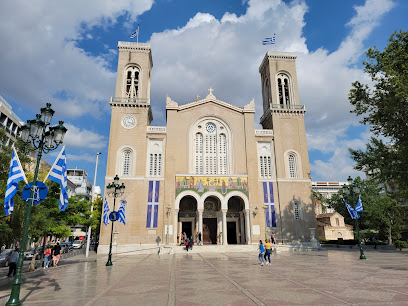
Choragic Monument of Lysicrates
Discover the Choragic Monument of Lysicrates in Athens, a timeless tribute to ancient theatre and the first example of Corinthian architecture.
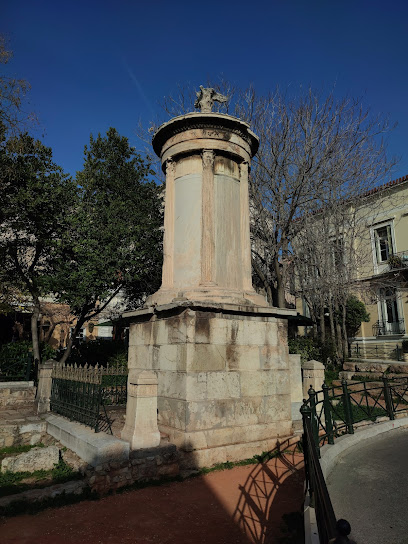
Melina Mercouri Monument
A tribute to Melina Mercouri, the monument celebrates Greek culture and a legacy of passion, art, and dedication in the heart of Athens.
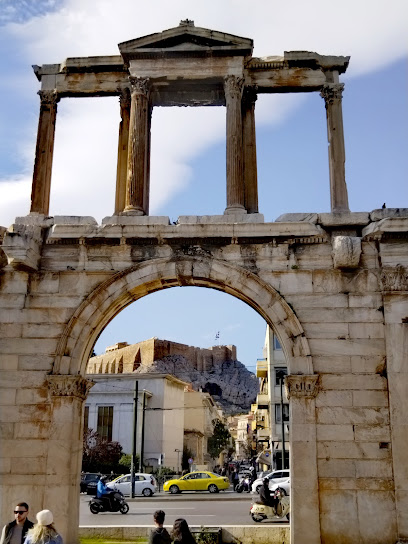
Greek Flag of Athens Acropolis
Witness the Greek flag waving proudly above the Acropolis, offering panoramic views and a powerful symbol of heritage and resilience.
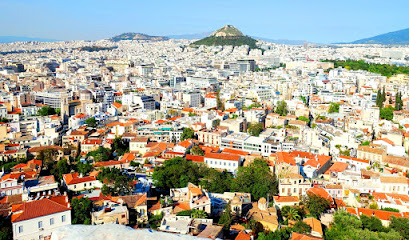
Hop on Riveria bus station
Start your Athenian Riviera adventure at this convenient transportation hub, connecting you to beaches, history, and scenic coastal routes.
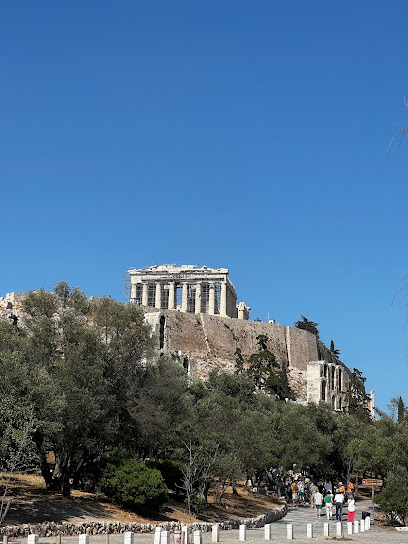
Anafiotika
Escape to a Cycladic village in the heart of Athens. Discover the hidden charm of Anafiotika, a tranquil oasis beneath the Acropolis.
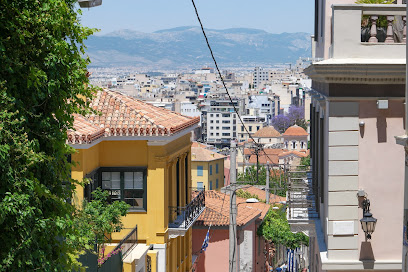
Roman Stoa
Explore the Roman Stoa in Athens: A historical landmark showcasing ancient architecture and serene botanical beauty in the heart of the city.
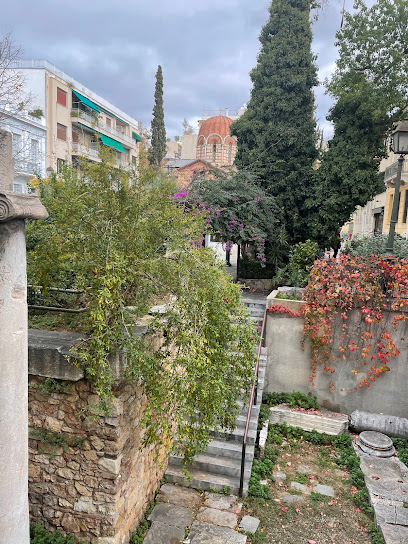
Las escaleras de Mnisikleous
Discover the vibrant heart of Athens at Las Escaleras de Mnisikleous, a charming stairway adorned with art, cafes, and authentic Athenian culture.
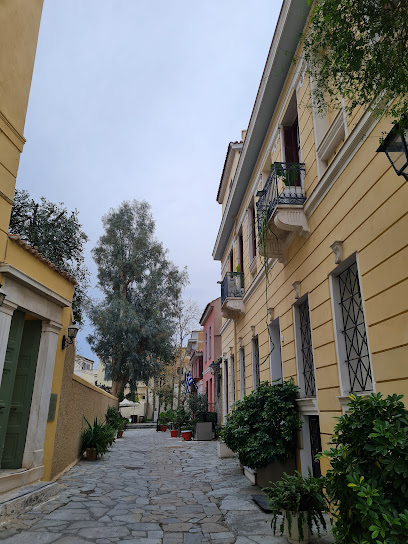
Paved Court of Klepsydra
Discover the ancient Paved Court of Klepsydra on the Acropolis, a historical spring and gathering place with rich cultural significance and architectural remains.
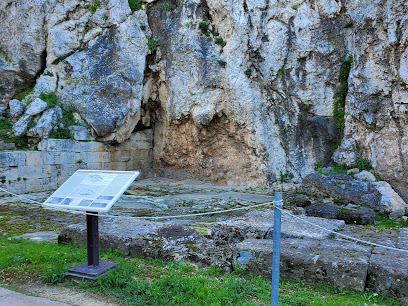
Plaka little Monk
Discover Plaka Little Monk, a serene Athenian neighborhood with historic charm, quaint streets, and stunning Acropolis views.
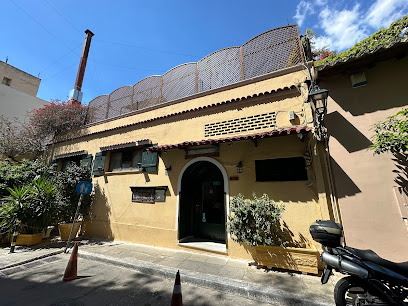
Unmissable attractions to see
Temple of Olympian Zeus
Explore the magnificent Temple of Olympian Zeus in Athens, a stunning historical site showcasing ancient Greek architectural brilliance and rich cultural heritage.
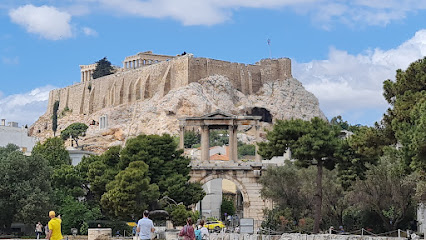
Roman Forum of Athens (Roman Agora)
Explore the Roman Forum of Athens, a captivating historical landmark showcasing the beauty and significance of ancient Roman culture.
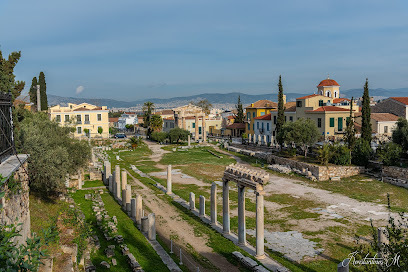
Choragic Monument of Lysicrates
Discover the beauty of the Choragic Monument of Lysicrates, an ancient Greek masterpiece blending history with the vibrant culture of Athens.
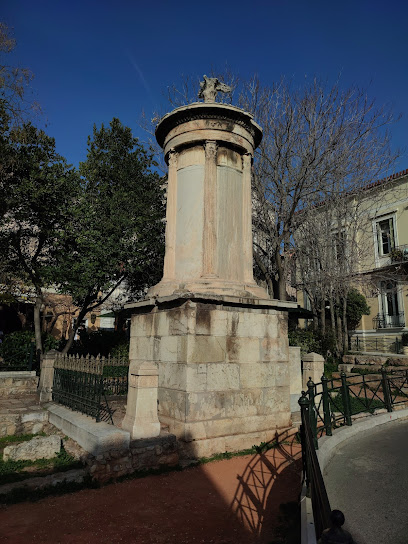
Plaka little Monk
Experience the timeless beauty and history of Plaka Little Monk, a hidden gem in Athens, where culture and tradition come alive.
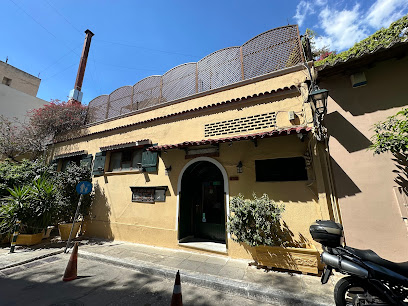
Essential places to dine
Aspro Alogo (i.e. White Horse) Traditional Greek Food
Discover authentic Greek cuisine at Aspro Alogo in Athens—where tradition meets flavor in every dish.
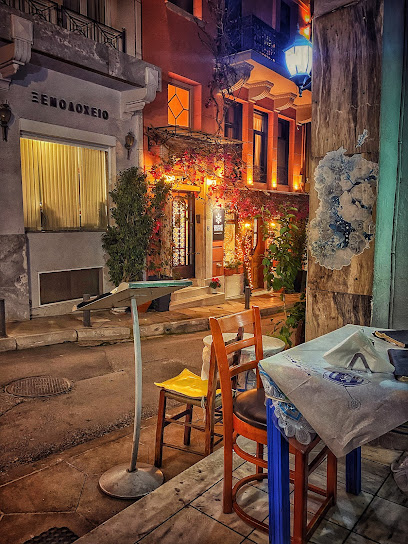
Restaurant Scholarhio
Experience the heart of Greece through exceptional flavors at Restaurant Scholarhio in Athens.
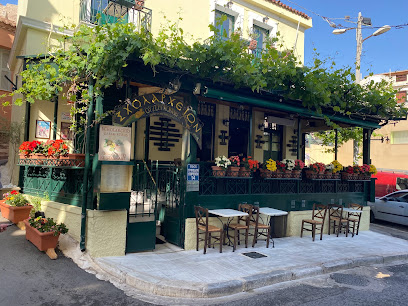
Klepsydra
Discover authentic Greek flavors at Klepsydra in Athens - where tradition meets modern culinary excellence.
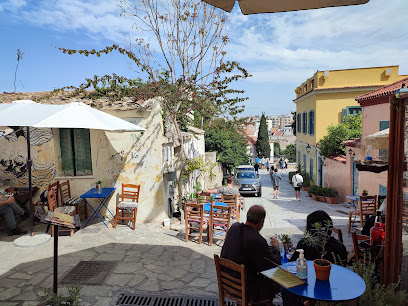
Taverna Saita
Discover authentic Greek flavors at Taverna Saita in Athens – where tradition meets taste in a cozy atmosphere.
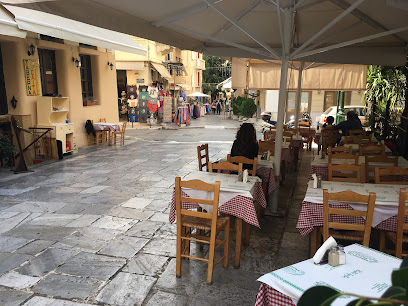
Trattoria
Experience authentic Greek cuisine at Trattoria in Athens - where tradition meets flavor in every dish.
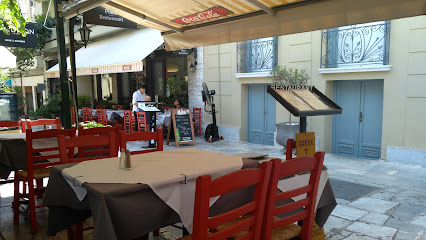
To Kafeneio
Experience authentic Greek flavors at To Kafeneio in Athens - where tradition meets culinary excellence.
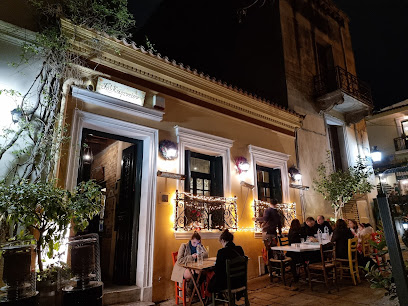
Anafiotika Cafe - Restaurant
Experience authentic Greek cuisine and breathtaking views at Anafiotika Cafe - your serene escape in the heart of Athens.
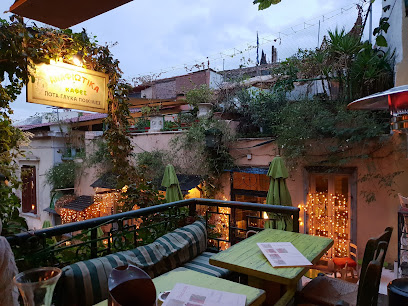
Geros Tou Moria Restaurant
Experience authentic Greek cuisine at Geros Tou Moria Restaurant in Athens – where tradition meets flavor in every bite.
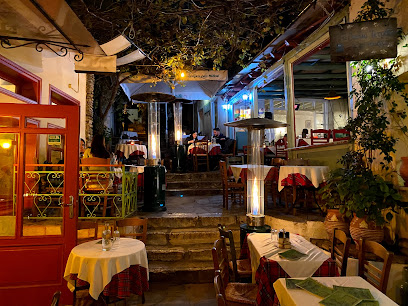
Ionos mediterraneon Greek Cuisine
Discover authentic Mediterranean flavors at Ionos Greek Cuisine in Athens—where every meal tells a story steeped in tradition.
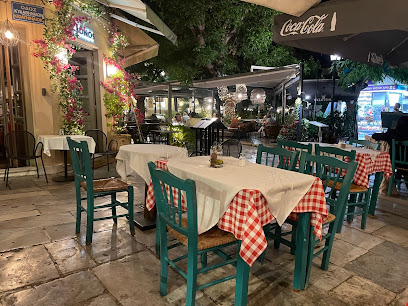
Electra Roof Garden
Experience breathtaking views and exquisite cuisine at Electra Roof Garden in Athens - where dining meets iconic landmarks.
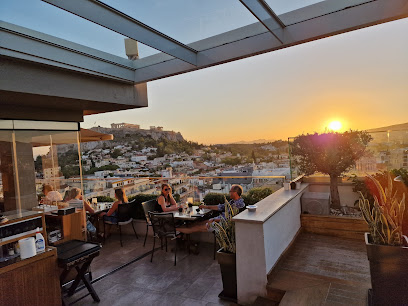
Markets, malls and hidden boutiques
Forget Me Not
Explore the charm of Forget Me Not, Athens' premier souvenir store, offering unique gifts that celebrate Greek culture and artistry.
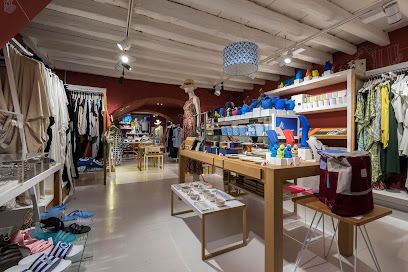
The Greek Shop
Experience the essence of Greece at The Greek Shop, offering local groceries, cosmetics, and perfumes in Athens' vibrant heart.
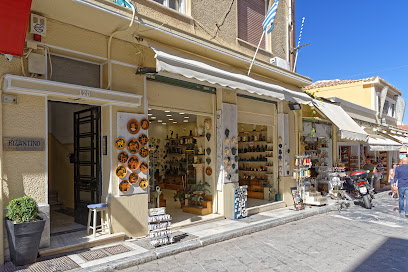
Greco Souvenir
Explore the heart of Greece at Greco Souvenir, where handcrafted treasures and local artistry await every traveler.
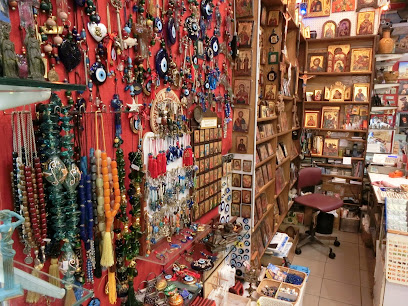
Gallery Demeter
Explore Gallery Demeter in Athens for unique souvenirs that embody Greek culture and artistry, perfect for every traveler seeking authentic keepsakes.
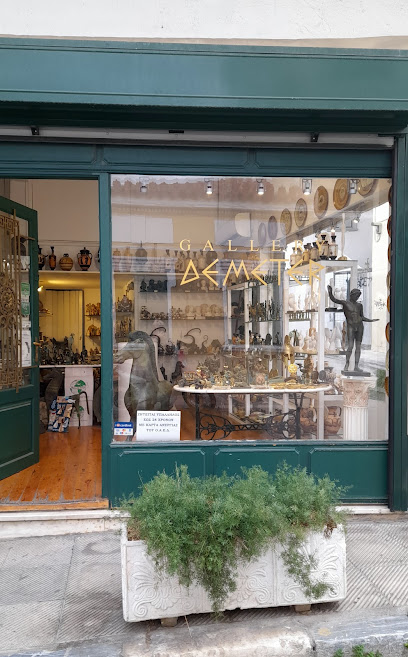
Potpourri Concept Store
Explore the Potpourri Concept Store in Athens for unique fashion accessories, perfumes, and creative supplies in a charming atmosphere.
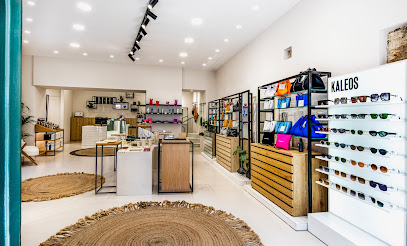
Articrafts Athens
Discover the heart of Greek craftsmanship at Articrafts Athens, where every handmade piece tells a unique story.
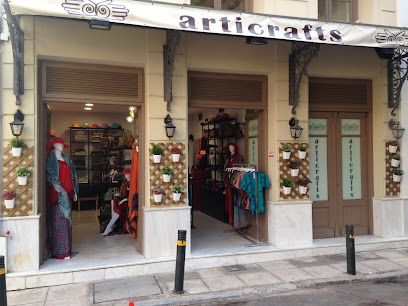
Emporion Gift Shop Plaka
Discover unique gifts and authentic Greek crafts at Emporion Gift Shop in the heart of Athens, where every item tells a story.
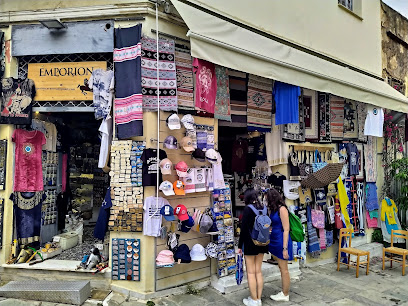
Leather Shop
Explore the Leather Shop in Athens for unique, handcrafted leather goods that embody Greek craftsmanship and culture.
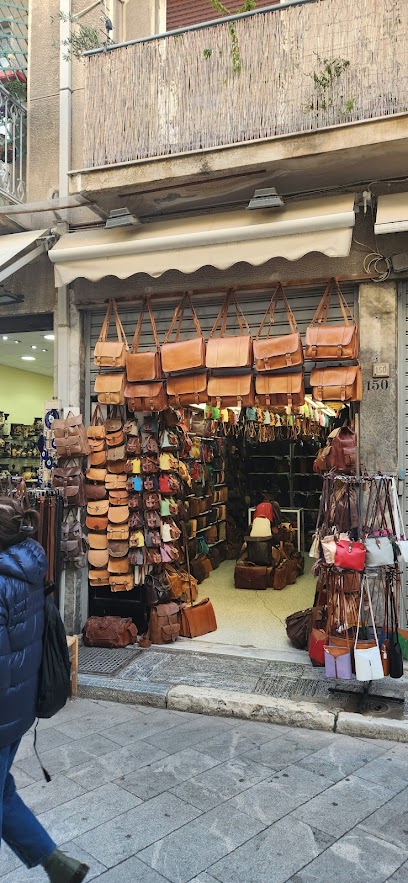
Cool Greek shops
Discover unique local crafts and artisanal goods at Cool Greek Shops - a must-visit destination for authentic souvenirs in Athens.
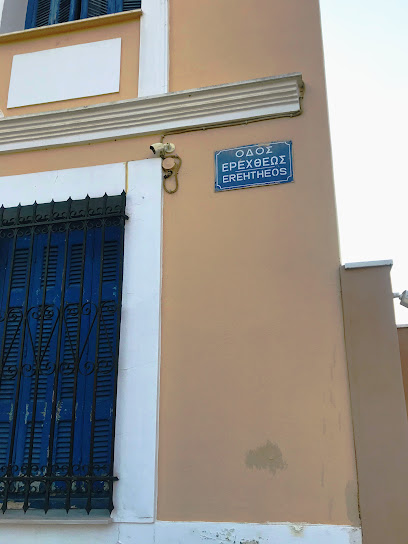
Museum Shop
Explore a treasure trove of unique souvenirs and cultural artifacts at the Museum Shop in Athens, reflecting the rich heritage of Greece.
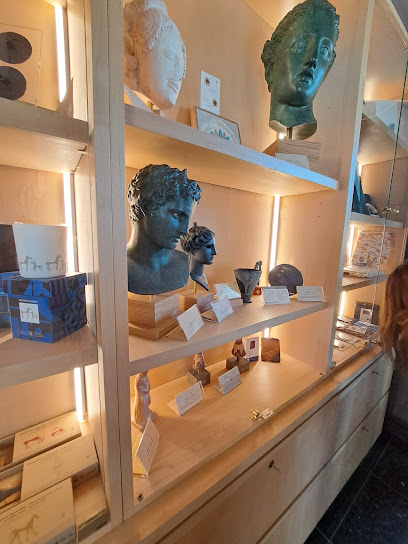
Essential bars & hidden hideouts
Brettos bar
Experience the rich tradition of Greek spirits at Brettos Bar in Plaka, Athens—where history and vibrant nightlife converge.
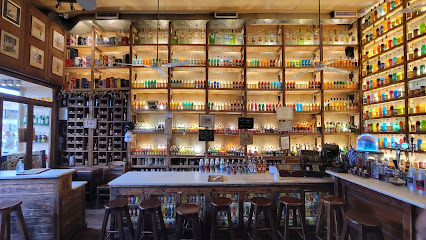
Buena Vista Social Bar
Discover the vibrant Latin American atmosphere at Buena Vista Social Bar in Athens, where delicious cuisine meets exceptional cocktails.
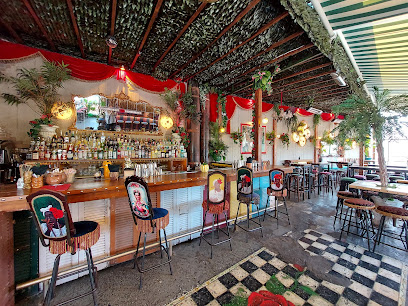
Ipitou The Bar
Discover the lively ambiance and exquisite drinks at Ipitou The Bar, Athens' premier destination for nightlife and social gatherings.
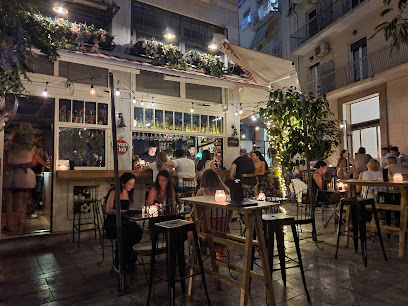
Thea Terrace
Discover the charm of Athens at Thea Terrace, where stunning views and delightful drinks create the perfect atmosphere for relaxation.
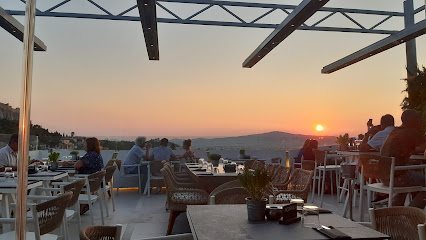
Warehouse CO2
Experience the Finest Wines and Gourmet Delights at Warehouse CO2, Athens' Premier Wine Bar and Deli Offering a Cozy Atmosphere.
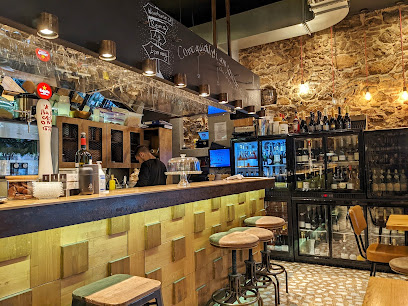
Drunky Goat
Experience the best of Athens' wine culture at Drunky Goat, where exquisite wines meet delicious tapas in a cozy atmosphere.
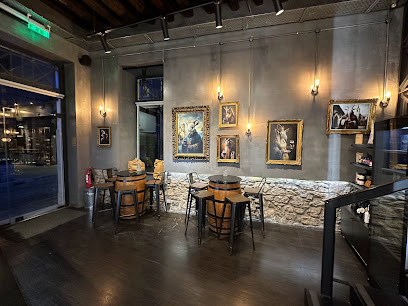
CHANDELIER
Discover the authentic flavors of Greece at Chandelier, a top grill restaurant in Athens, offering a vibrant atmosphere and mouthwatering dishes.
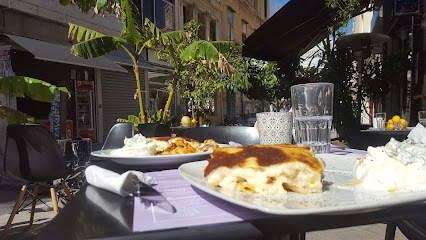
Licores
Experience the lively atmosphere and unique cocktails at Licores, one of Athens' top bars for nightlife and relaxation.
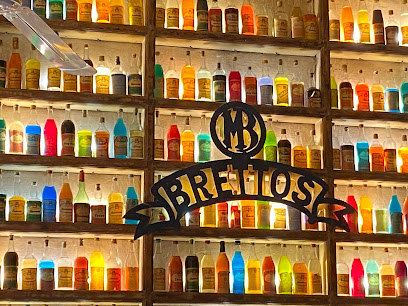
Plaka street
Discover the charm of Plaka Street, where vibrant bars meet historic Athenian culture, offering an unforgettable experience in the heart of Greece.
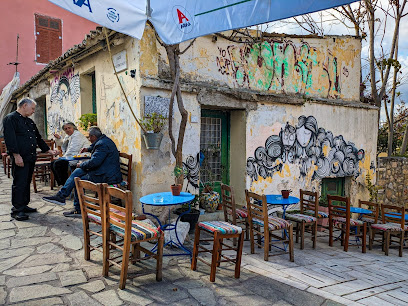
Jackass Penguin Gallery and Cocktail Bar
Discover the unique flavors of Greece at Jackass Penguin Gallery and Cocktail Bar, where culinary excellence meets vibrant local art.
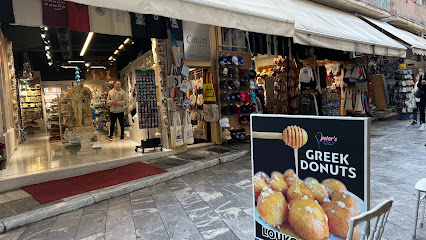
Local Phrases
-
- HelloΓεια σας
[Yia sas] - GoodbyeΑντίο
[Adio] - YesΝαι
[Ne] - NoΌχι
[Ohi] - Please/You're welcomeΠαρακαλώ
[Parakalo] - Thank youΕυχαριστώ
[Efharisto] - Excuse me/SorryΣυγγνώμη
[Signomi] - How are you?Πώς είστε;
[Pos iste?] - Fine. And you?Καλά. Εσείς;
[Kala. Esis?] - Do you speak English?Μιλάτε Αγγλικά;
[Milate Agglika?] - I don't understandΔεν καταλαβαίνω
[Den katalaveno]
- HelloΓεια σας
-
- I'd like to see the menu, pleaseΘα ήθελα να δω το μενού, παρακαλώ
[Tha ithela na do to menou, parakalo] - I don't eat meatΔεν τρώω κρέας
[Den troo kreas] - Cheers!ΥΓΕΙΑ!
[Yia!] - I would like to pay, pleaseΘα ήθελα να πληρώσω, παρακαλώ
[Tha ithela na plirosa, parakalo]
- I'd like to see the menu, pleaseΘα ήθελα να δω το μενού, παρακαλώ
-
- Help!Βοήθεια!
[Voithia!] - Go away!Φύγε!
[Fiye!] - Call the Police!Καλέστε την Αστυνομία!
[Kaleste tin Astinomia!] - Call a doctor!Καλέστε για γιατρό!
[Kaleste ya giatro!] - I'm lostΈχω χαθεί
[Eho hathi] - I'm illΕίμαι άρρωστος
[Emai arrostos]
- Help!Βοήθεια!
-
- I'd like to buy...Θα ήθελα να αγοράσω...
[Tha ithela na agoraso...] - I'm just lookingΑπλά κοιτάω
[Apla kitao] - How much is it?Πόσο κοστίζει;
[Poso kostizi?] - That's too expensiveΑυτό είναι πάρα πολύ ακριβό
[Afto ine para poli akribo] - Can you lower the price?Μπορείτε να μειώσετε την τιμή;
[Borite na meiosete tin timi?]
- I'd like to buy...Θα ήθελα να αγοράσω...
-
- What time is it?Τι ώρα είναι;
[Ti ora ine?] - It's one o'clockΕίναι μία η ώρα
[Ine mia i ora] - Half past (10)Μισή (10)
[Misi (dekka)] - MorningΠρωί
[Proi] - AfternoonΑπόγευμα
[Apoyevma] - EveningΒράδυ
[Vradi] - YesterdayΧθες
[Hthes] - TodayΣήμερα
[Simera] - TomorrowΑύριο
[Avrio] - 1Ένα
[Ena] - 2Δύο
[Dio] - 3Τρία
[Tria] - 4Τέσσερα
[Tessera] - 5Πέντε
[Pente] - 6Έξι
[Exi] - 7Εφτά
[Efta] - 8Οχτώ
[Ohto] - 9Εννιά
[Ennia] - 10Δέκα
[Deka]
- What time is it?Τι ώρα είναι;
-
- Where's a/the...?Πού είναι ένα/το...;
[Pou ine ena/to...?] - What's the address?Ποια είναι η διεύθυνση;
[Pia ine i diefthinsi?] - Can you show me (on the map)?Μπορείτε να μου δείξετε (στο χάρτη);
[Borite na mou dixete (sto charti)?] - When's the next (bus)?Πότε είναι το επόμενο (λεωφορείο);
[Pote ine to epomeno (leoforeio)?] - A ticket (to ....)Ένα εισιτήριο (για ....);
[Ena isitirio (ya ....)?]
- Where's a/the...?Πού είναι ένα/το...;
History of Plaka
-
Plaka, often referred to as the 'Neighborhood of the Gods', lies at the foot of the Acropolis, one of the most significant archaeological sites in the world. This area has been continuously inhabited since antiquity, serving as a vibrant hub of Athenian life and culture. The proximity to the Acropolis made Plaka a focal point for ancient Greek civilization, where philosophers and statesmen gathered.
-
During the Byzantine period, Plaka became an important center for Christianity, with numerous churches established throughout the neighborhood. Some of these structures, like the Church of Panagia Gorgoepikoos, showcase exquisite Byzantine architecture and are a testament to the area’s religious significance during this time.
-
Under Ottoman rule from the 15th to the 19th century, Plaka experienced significant cultural and architectural transformation. The neighborhood became populated with neoclassical mansions and traditional Ottoman houses. The blend of architectural styles reflects the multicultural influences of the period, with mosques and fountains dotting the neighborhood, providing a glimpse into its diverse past.
-
Plaka played a notable role during the Greek War of Independence in the 1820s. The neighborhood’s narrow streets and hidden passages were strategic for local fighters. After the successful liberation from Ottoman rule, Plaka became a symbol of national pride and cultural revival, celebrating its rich history and heritage.
-
The mid-20th century saw Plaka undergo urbanization, with increased tourism and commercialization. However, preservation efforts began to take shape in the latter half of the century, aimed at maintaining the area's historical integrity. The establishment of pedestrian zones and regulations on construction has helped retain the charm and character of Plaka amidst the modernizing city of Athens.
Plaka Essentials
-
Plaka is centrally located in Athens, making it easily accessible from various neighbourhoods. The neighbourhood can be reached by the Athens Metro; the nearest station is Acropolis (Line 1) or Syntagma (Line 3), both within a short walking distance. Buses and trolleybuses also service the area, with several stops along the main roads. Taxis are readily available throughout Athens, and a ride to Plaka from other central areas typically costs between €5-€10.
-
Plaka is a pedestrian-friendly area, ideal for walking. The narrow streets are best explored on foot, allowing visitors to discover hidden gems, shops, and cafes. While there is no dedicated public transport within Plaka, nearby metro stations and bus stops provide easy access to other parts of Athens. Bicycles can be rented through various local services if you wish to explore the surrounding areas at a faster pace.
-
Plaka is generally considered a safe neighbourhood for tourists, but standard precautions should be taken. Avoid isolated areas, particularly at night. Petty crimes such as pickpocketing can occur in crowded places, especially near major tourist attractions. Areas to be cautious in include Monastiraki Square and Omonia Square, known for higher crime rates. Always be aware of your surroundings and secure your belongings.
-
In case of emergency, dial 112 for police, fire, or medical assistance in Greece. The nearest hospital is Evangelismos Hospital, which is accessible via taxi or metro. Always carry a copy of your passport and any necessary documents while exploring Plaka. It is advisable to have travel insurance that covers medical emergencies. Pharmacies are plentiful in the area for minor health issues.
-
Fashion: Do dress modestly when visiting churches or religious sites, and avoid overly revealing clothing. Religion: Do respect local customs and traditions, including covering your shoulders and knees when entering churches. Public Transport: Do give up your seat for elderly passengers and avoid eating or drinking on public transport. Greetings: Do greet locals with a friendly 'Kalimera' (Good morning) and a smile; a handshake is common. Eating & Drinking: Do try traditional dishes and local wines, and accept food and drink offers graciously. Don't waste food or drink alcohol in public during the day, as it is considered disrespectful.
-
To experience Plaka like a local, visit the small shops and artisan workshops that are often overlooked by tourists. Engage with local vendors in the bustling markets for authentic souvenirs and fresh produce. Sample local delicacies at family-run tavernas, and be sure to try a 'souvlaki' or 'mousaka.' For a unique experience, visit the hidden gardens and lesser-known ruins scattered throughout the neighbourhood. Early morning or late afternoon strolls provide a quieter atmosphere to soak in the charm of the cobbled streets.
Nearby Cities to Plaka
-
Things To Do in Nafplio
-
Things To Do in Delphi
-
Things To Do in Lamia
-
Things To Do in Mykonos
-
Things To Do in Volos
-
Things To Do in Kalamata
-
Things To Do in Patras
-
Things To Do in Olympia
-
Things To Do in Larissa
-
Things To Do in Santorini
-
Things To Do in Pyrgos
-
Things To Do in Zakynthos
-
Things To Do in Meteora
-
Things To Do in Chania
-
Things To Do in Katerini













